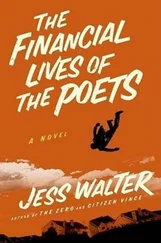Jess Walter - Land Of The Blind
Здесь есть возможность читать онлайн «Jess Walter - Land Of The Blind» весь текст электронной книги совершенно бесплатно (целиком полную версию без сокращений). В некоторых случаях можно слушать аудио, скачать через торрент в формате fb2 и присутствует краткое содержание. Жанр: Детектив, на английском языке. Описание произведения, (предисловие) а так же отзывы посетителей доступны на портале библиотеки ЛибКат.
- Название:Land Of The Blind
- Автор:
- Жанр:
- Год:неизвестен
- ISBN:нет данных
- Рейтинг книги:3 / 5. Голосов: 1
-
Избранное:Добавить в избранное
- Отзывы:
-
Ваша оценка:
- 60
- 1
- 2
- 3
- 4
- 5
Land Of The Blind: краткое содержание, описание и аннотация
Предлагаем к чтению аннотацию, описание, краткое содержание или предисловие (зависит от того, что написал сам автор книги «Land Of The Blind»). Если вы не нашли необходимую информацию о книге — напишите в комментариях, мы постараемся отыскать её.
Land Of The Blind — читать онлайн бесплатно полную книгу (весь текст) целиком
Ниже представлен текст книги, разбитый по страницам. Система сохранения места последней прочитанной страницы, позволяет с удобством читать онлайн бесплатно книгу «Land Of The Blind», без необходимости каждый раз заново искать на чём Вы остановились. Поставьте закладку, и сможете в любой момент перейти на страницу, на которой закончили чтение.
Интервал:
Закладка:
In that first decade after high school, there would be no canniness or blossoming or positioning for Eli. Certainly no wealth. He spent a year at community college but managed only a few credits before he dropped out to care for his mother, who had been diagnosed with Parkinson's disease. Eventually, he and his mother moved to a downtown apartment to be closer to the hospital where she received medical care, and Eli gave up on college altogether and took a job processing film at a one-hour photo. I saw him once during this time – walking downtown, wearing a photo-booth apron, his nose in a book, plying the sidewalk with his bent-legged shuffle, shoulders rolled forward and glasses at the end of his nose. I was with two frat brothers, privileged sons of Mercer Island professionals, and I am sorry to admit (amid a thousand sorries) that I did not wave or stop to say hi or so much as slow down.
For me, those first two years of college had been nothing short of epiphanic, fulfilling in ways I didn't know I could be fulfilled. Seattle was a land I had dreamed about without knowing it existed (let alone four hours away by car), and I happily left behind my hometown and its embarrassing, rigid poverty, its stunted ambitions, its daydreams that too often consisted of getting day shift at the aluminum factory. I thought of my home as a kind of childhood disease I had overcome, and I learned to despise it the way a thankless child despises his uncultured family.
The campus of the University of Washington opened for me like a pop-up book. Backpacked and Ray-Banned, I marched in Top-Siders and polo shirts with twenty thousand other soldiers of reinvention, from class to class in vast lecture halls, to intramural games along the lake, used bookstores on the Ave, keg lines in the district, breakfast joints in Wallingford, bars in Belltown. I crabbed and kayaked, rock-climbed and mountain-biked, threw Frisbees on cold beaches, drank Canadian beer, and learned to have sex with bulimia-thin girls in dorm room bunk beds and sorority house study carrels (though I never forgot my lessons with Susan, and was always on the lookout for a more vehicular hump). I studied. Got A's. Networked. Brown-nosed.
But most of all I ran for things. I started slowly, filing unopposed for sergeant at arms in my freshman dormitory president of my fraternity (and then a shoo-in for the top spot my senior year) and president of the campus chapter of the Young Democrats, as well as a lesser officer in six other organizations, everything from Junior Toastmasters to the Young Sierra Club. I fell in with a group of similar alpha achievers, and we worked our young resumes and our grade point averages with the same fervor that we chased tail.
At some point during my sophomore year, I stopped thinking of myself as being from Spokane. I was part of the torrent of people who were just then beginning to flood Seattle with our affections and affectations, with our arrogance: an unwitting conspiracy of transplants and entrepreneurs, hikers, bikers, and seekers, the regionally hip – a cult of casually dressed devotees of grubby Northwest realism. Over the next twenty years, we would ruin all that we found charming: old flop hotel lounges and Irish bars and Pioneer Square taverns. We discovered smoky dives filled with drunken hobos and cranky Norwegian fishermen and drank and smoked amid them, sucking their genuineness until we looked up and saw the hobos were software engineers and the fishermen bicycle messengers and hummus was on the menu. Coffee and chowder and punk trios became brand names and mall kiosks and dull pop. Tucked-booth greasy-spoon breakfast joints became tour-guided facsimiles of tucked-booth greasy-spoon breakfast joints, and only by listening closely ("We'll have the whole wheat goat cheese difference. We turned every gas station into a coffee shop, and by the time I left Seattle you could have four hundred flavors of coffee, but you couldn't find a decent gallon of gas.
We were beginning to love the place to death.
"Aren't you homesick?" my mother used to ask on the phone, at the outset of my affair with Seattle. Later, she was more direct. "Are you ever coming home?"
But how could I leave, even for a weekend? The sun might come out.
Spokane was only four hours away and yet it faded from my memory. I came home only three times each my freshman and sophomore years. "I'm really swamped" was my standard response to my mother's entreaties. This was the advantage of being the first in my family to ever go to college; they had no balance to my stories of round-the-clock studying, of mandatory poetry readings and guest lectures and spirit bonfires.
When I did come home I felt increasingly detached from Spokane, and from my parents, whom I lectured with the arrogance of a transplant, with the zeal of a religious convert. Every other sentence out of my mouth began, "The problem with this place-" I suggested that Seattle's vitality revealed Spokane's failings: its aging population, its economic and political intractability, its lack of imagination and unrelieved shabbiness. "Spokane is Kmart," I famously said at Christmas dinner once. "Seattle is Nordstrom."
Mom and Dad were so proud of my A's and my smooth transition to college that they indulged my bouts of civic self-importance. My sisters, too, sat through my lectures. The only person who didn't put up with this shit was my brother Ben, who rolled his eyes at my newfound civic pretentiousness and missed no opportunity to mock me: "Spokane is a cup of piss," he said that same Christmas. "Seattle is a two-dollar cup of piss."
My parents were just beginning to worry about Ben during this time, that his unleavened cynicism was more than just a phase. He had graduated from high school and grown into a thin, caustic young man; with his short hair and raw features, he looked like a British soccer fan. He had abandoned his smoking jacket and pipe for a mode of self-expression he called "enlightened laziness," which consisted mostly of sitting around my parents' house in flannel pajamas, skimming old philosophy books, playing Atari, and drinking red wine out of Slurpee cups. When my father laid down the law and told him to enroll in college, Ben disrespectfully declined. He found an apartment and got a job mopping hospital corridors at night so that his days would remain open for sitting around in his pajamas, reading Nietzsche and Sartre, and drinking red wine out of Slurpee cups.
That fall – it was my junior year – every phone call home quickly devolved into a discussion of Ben's malaise. "He needs to get out of Spokane," I said. "It breeds apathy." But my mother convinced me that at least some of it had to do with Ben missing me, that he was aping my slovenly behavior during my last summer at home.
That's how, on a crisp, clear Saturday morning that October, I found myself driving across Washington State, through the serrated Cascades, through the channeled scablands, wheat fields, and scrub forests, until I descended into Spokane and all that I'd left behind. I drove straight to Ben's apartment, near Spokane Falls Community College, on a basalt-and-pine ledge northwest of downtown. His apartment was at the end of a wrought-iron-railed staircase – a basement studio with dark curtains hung over submarine windows. It was 11:00 A.M. and the apartment was dead quiet. I knocked three times before the door opened, and there stood Ben, in flannel pajamas, eyes half-opened slits. I followed him into the apartment and he went to the kitchen, poured himself a bowl of Cap'n Crunch and a tumbler of red wine.
"Isn't it a little early for Chianti?" I asked.
He rubbed his head and his brown hair remained where he'd pushed it, like Play-Doh. "You can't serve Riesling with Cap'n Crunch," he said.
The apartment was dark and fetid, damp like the inside of a shoe. "Mom and Dad want me to talk to you about college," I said.
Читать дальшеИнтервал:
Закладка:
Похожие книги на «Land Of The Blind»
Представляем Вашему вниманию похожие книги на «Land Of The Blind» списком для выбора. Мы отобрали схожую по названию и смыслу литературу в надежде предоставить читателям больше вариантов отыскать новые, интересные, ещё непрочитанные произведения.
Обсуждение, отзывы о книге «Land Of The Blind» и просто собственные мнения читателей. Оставьте ваши комментарии, напишите, что Вы думаете о произведении, его смысле или главных героях. Укажите что конкретно понравилось, а что нет, и почему Вы так считаете.











